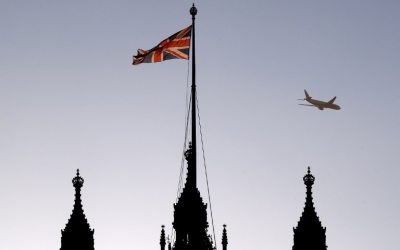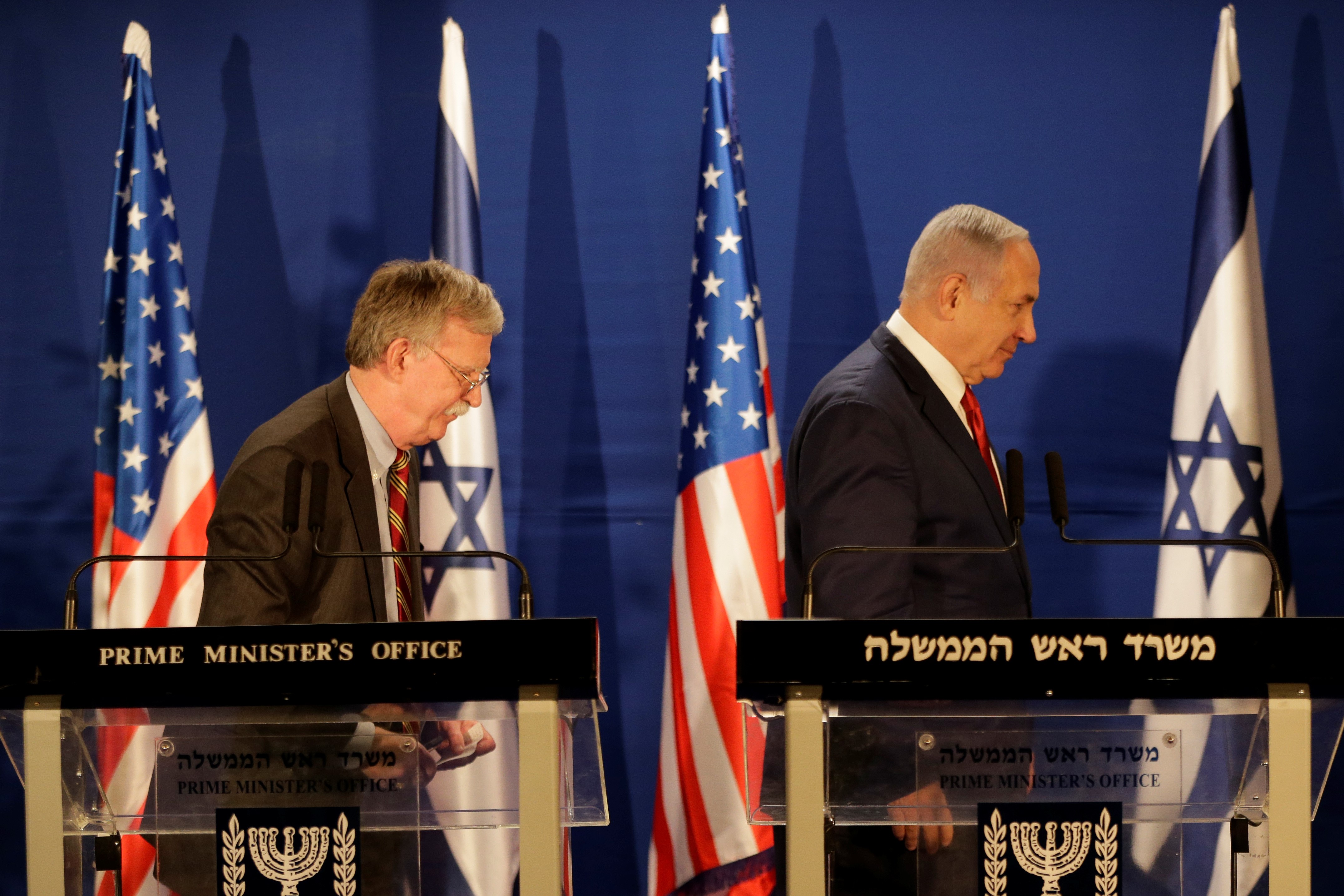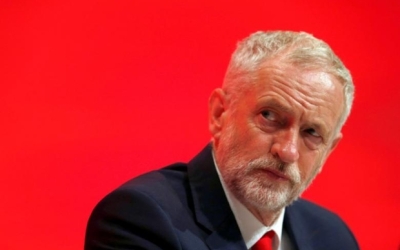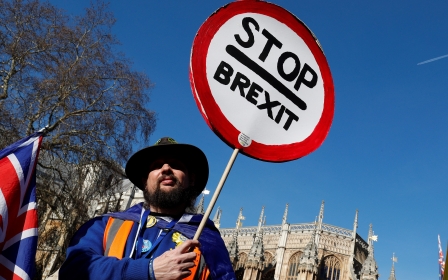Britain is following Trump’s disastrous lead on Middle East policy
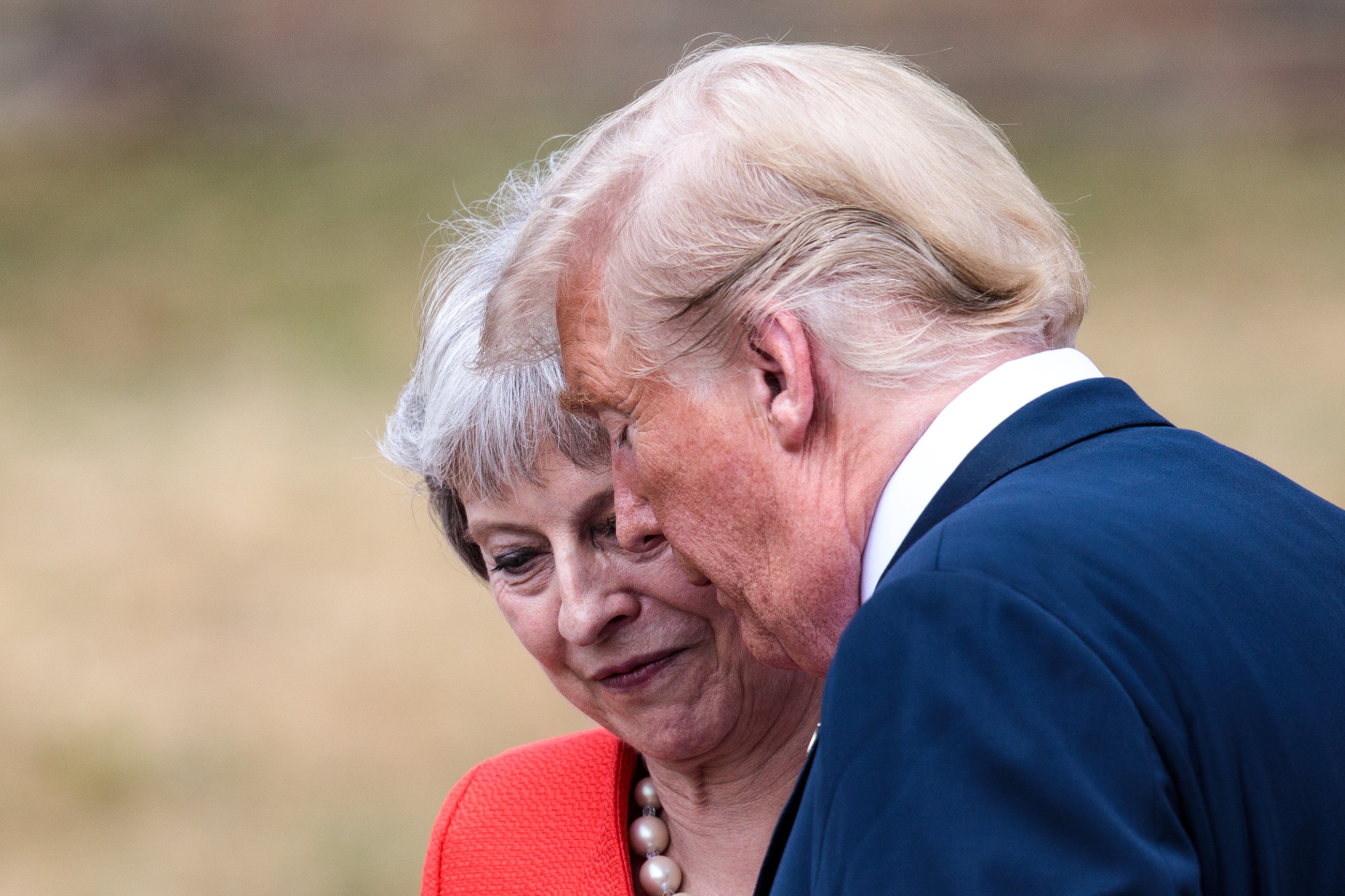
The Israeli-Palestinian "peace process” was a farce long before Donald Trump became president, and the US has never been an even-handed, honest broker between the parties.
Before the US election in 2016, some pro-Palestinian commentators suggested the trash-tweeting tycoon could hardly be worse than previous administrations that facilitated the ongoing dispossession and subjugation of Palestinians.
He might even be preferable to Hillary Clinton, pundits speculated, who had rarely acknowledged Palestinian grievances and promised to thaw relations with Israel that had chilled under Obama.
Such predictions have proved to be wishful thinking. Trump has shown time and again that things can always be worse, and certainly for Palestinians, they are. Benjamin Netanyahu must be pinching himself with incredulous glee at the windfall of gifts the White House is showering upon him.
Trump's many gifts to Israel
New MEE newsletter: Jerusalem Dispatch
Sign up to get the latest insights and analysis on Israel-Palestine, alongside Turkey Unpacked and other MEE newsletters
Let us count the handouts. The long-prized move of the US embassy from Tel Aviv to Jerusalem with attendant recognition of just one side’s claims to the holy city. The cessation of aid to Palestinians and the shuttering of Palestinian missions in Washington.
The dropping of the word "occupation" in US government literature to legitimise Israel’s hold on the West Bank. The shift from rote condemnation to active support for the criminal settlement enterprise under the guidance of advisors, like David Friedman, with a long record of material support for settlements.
The arbitrary recognition of Syria’s Golan Heights as part of Israel - kicking away the most fundamental pillar of international law.
Trump’s administration of fundamentalist hawks have also supported Netanyahu’s every bellicose whim towards nemesis Iran, from ditching the JCPOA nuclear deal to designating Iran’s Revolutionary Guards (IRGC) a terror group.
Counterweight required
The need for a counterweight to US power has never been clearer than in this era of deranged white nationalist leadership in the White House. But in this age of authoritarians, from Russia to China, India to Brazil, sticklers for international law and human rights are thin on the ground.
Europe might reasonably be hoped to offer some resistance, and the leaders of France and Germany have made some effort to preserve the old guidelines for the conflict. But the continent’s united front is undermined by the Israel-friendly strongmen of the Visegrad countries, who have proved only too willing to forget any responsibility towards Palestinians or a rules-based order.
Britain, too, in its Brexit flux, has broken ranks and revealed itself to be more weathervane than signpost.
Once a mighty imperial power, Britain now takes every opportunity to advertise its servility to a former colony
The Foreign Office has managed a few timid condemnations of US-approved excesses. There has been some disapproving statements on rampant settlement expansion.
Foreign Secretary Jeremy Hunt has said he disagrees with handing Israel pieces of Syria. But this barely disguises a deeper shift towards accommodation and support for the US agenda.
This has been made plain in diplomatic forums. In March, Hunt announced that the UK would - for the first time - be voting against motions brought under Item 7 at the UN Human Rights Council, a permanent feature on the council’s agenda concerning the “human rights situation in Palestine and other occupied Arab territories".
The UK separately refused to endorse a UN report into the Gaza's “Great Return marches” in which almost 200 Palestinians were killed that criticised the Israeli army.
In January 2017, just days before Trump’s inauguration, the UK surprised and angered its allies by blocking a European Union resolution affirming the two-state solution.
“The UK is changing a 20-year policy on the Middle East and settlements for the sake of a good trade deal with Trump,” a European diplomat was quoted as saying in the Financial Times.
Following US lead
Once a mighty imperial power, Britain now takes every opportunity to advertise its servility to a former colony.
While the US was condemned around the world after announcing plans to move its embassy to Jerusalem, Britain’s then foreign secretary, Boris Johnson, saw the upside and praised the decision for creating a “moment of opportunity”.
Worse, the UK has done its best to legitimise the “bankruptcy-type” peace deal being cooked up by the most fervent pro-Israel partisans in the Trump administration.
Boris Johnson offered Britain’s support for the deal and rallied allies for a summit to discuss its terms.The plan is expected to dispense with the previous parameters for a final status agreement, affirming Israeli control over occupied territory and offering Palestinians economic incentives to give up their claims to sovereignty.
Britain has also followed the US in pursuing a draconian crackdown on the Boycott, Divestment, and Sanctions (BDS) movement. Anti-BDS laws are now on the statute books of 25 US states, in some cases making federal contracts with American citizens contingent on a loyalty oath to Israel.
Congress is deliberating over a bill that would buttress states’ rights to "boycott the boycotters", which the American Civil Liberties Union (ACLU) protests is incompatible with the First Amendment.
The preceding Senate bill was considered such a priority that it was the first item of the new session following the 2018 midterm elections, put to a series of votes even while the government was in shutdown.
In the UK, Home Secretary Sajid Javid has taken legally dubious steps to ban councils from participating in boycotts.
British universities have come under heavy pressure from government ministers to limit speech critical of Israel, often based on a controversial definition of anti-semitism that has been applied to BDS, use of the term "apartheid", and arguments for a one-state solution among other staples of pro-Palestinian activism.
A similar definition is also increasingly used in the US, often against supporters of Palestinian rights at universities.
Enabling US plans
Britain has also played an enabling role in the US’s plans for conflict with Iran, a long and deeply held ambition of senior administration hawks such as National Security Advisor John Bolton.
Trump’s team have prepared the ground for war by ditching the JCPOA, ramping up sanctions, and supporting Israeli air strikes on Iranian targets in Syria.
On Sunday, Bolton said that the US was deploying a carrier strike group and a bomber task force to the Middle East to send a clear message to Iran that any attack on US interests or its allies will be met with “unrelenting force".
Leading lights of the Republican party are open about their goal of regime change.
As part of this campaign, the US convened a summit in March to discuss plans for action against Iran. Like Bolton, Netanyahu has been pushing for war with Iran for much of his political career and bluntly described that as the purpose of the summit.
Senior European leaders were naturally absent from the event given that it drastically undermined their diplomatic work in negotiating the nuclear accord. Only Jeremy Hunt broke ranks by attending.
Going forward
Britain’s inactions may be as significant as its actions in indicating the government’s direction of travel.
Netanyahu’s election-eve pledge to annex the West Bank was met with silence from Westminster, despite it shredding any prospect of a two-state solution, Britain’s long-stated policy goal.
The US decision to cut aid from Palestinian projects was meekly accepted. Israel’s deportation of human rights workers was greeted with the response that "it is ultimately up to Israel to determine its immigration policy”.
Following the recent violence in Gaza, Hunt tweeted his sympathies for “innocent civilians killed and affected by Hamas’ indiscriminate and abhorrent rocket attacks”, but followed US officials in omitting any mention of the 25 Palestinian civilians who were killed by Israeli strikes including several children and two pregnant women.
Through its long period of imperial decline, the UK has cleaved to the positions of its senior partner across the Atlantic, however misguided and catastrophic, as exemplified by the invasion of Iraq.
But with a deranged and dangerous president in the White House flanked by even more sinister advisers, one might hope that the British government could assert a degree of independence. The evidence suggests otherwise.
A newly-friendless Britain, dizzy from the self-inflicted blows of Brexit, appears to be marching in lockstep with the US regime as it torches any possibility of a just peace in the Middle East.
How long before lip service opposition to settlement expansion, annexation and trampling of Palestinian rights gives way to full acquiescence? How long before the British government gives its blessing to war with Iran?
Donald Trump can count on us.
The views expressed in this article belong to the author and do not necessarily reflect the editorial policy of Middle East Eye.
Middle East Eye delivers independent and unrivalled coverage and analysis of the Middle East, North Africa and beyond. To learn more about republishing this content and the associated fees, please fill out this form. More about MEE can be found here.




